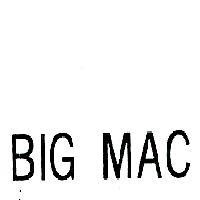On June 16, 2020, NVIDIA CORPORATION (“NVIDIA”), the registrant of trademark no. 02070494 (see below), filed opposition against MediaTek Inc. (“MediaTek”), alleging that the registration of MediaTek’s “MediaTek Turing” shall be cancelled due to violation of Article 30.1.10, 30.1.11, and 30.1.12 of Trademark Law.
The challenged trademark, “MediaTek Turing” (Reg. No. 02049241, see below), was filed on October 3, 2019, and granted on March 16, 2020, designated for use in goods under class 9 (e.g., semiconductor, integrated circuits, chipset, printed circuit boards, computer programs, computer software, etc.) and services under class 42 (e.g., computer software design, integrated circuit design, software design for artificial intelligence, etc.).
On November 26, 2021, Taiwan’s IP Office (“TIPO”) sided with MediaTek, finding the registration of “MediaTek Turing” would not cause confusion with “NVIDIA TURING”:
1.
NVIDIA
argued that both “MediaTek Turing” and “NVIDIA TURING” share the word
“Turing/TURING”, so the degree of similarity between “MediaTek Turing” and
“NVIDIA TURING” should be quite high. MediaTek countered that “TURING” in
general would be perceived as the name of the well-known computer scientist Mr.
Alan Mathison Turing, so the word “TURING” should not be distinctive if being
used for the designated goods under class 9 and services under class 42, which
are related to computer technology and design of algorithm.
2.
TIPO
found for MediaTek, finding that the word “TURING” would not be distinctive
when being used in the designated goods and services, and that consumers would
find the initial words in both trademarks, namely, “NVIDIA” and “MediaTek”,
more distinctive and appealing. In other words, consumers would view the
trademarks in their entirety, which include “NVIDIA” and “MediaTek”, rather
than focus only on “Turing” and “TURING”, to identify the source of the
provided goods and services. Thus, TIPO posited that consumers would not find “MediaTek
Turing” and “NVIDIA TURING” similar with each other.
3. NVIDIA also argued that when MediaTek filed its application for “MediaTek Turing” on October 3, 2019, “NVIDIA TURING” has already been a famous trademark. To this end, TIPO noted that the evidence submitted by NVIDIA did show that “NVIDIA” as a trademark has been put in use and well-known among the relevant consumers. However, there is less evidence showing “NVIDIA TURING” has gained the same well-known status. More evidence, such as sales records showing the revenue of products bearing the trademark “NVIDIA TURING” and the corresponding market share of these products, is needed.
TIPO agreed that the designated products and services of “MediaTek Turing” are similar with those of “NVIDIA TURING”. Nonetheless, considering the facts that “MediaTek Turing” and “NVIDIA TURING” are both distinctive, that consumers would not find “MediaTek Turing” and “NVIDIA TURING” similar with each other, and that evidence is insufficient to prove “NVIDIA TURING” as a trademark has obtained well-known status when “MediaTek Turing” was filed for application, TIPO determined that the registration of “MediaTek Turing” would not cause confusion with “NVIDIA TURING”, and thus there is no violation of the cited Trademark Law.
Source: https://twtmsearch.tipo.gov.tw/OS0/OS0401_SCN3.jsp?issueNo=XpJ13RyT4VlBKdWh4MFpLM0gyZm1UbmdtaTBJUT09&l6=zh_TW&isReadBulletinen_US=&isReadBulletinzh_TW=true




























